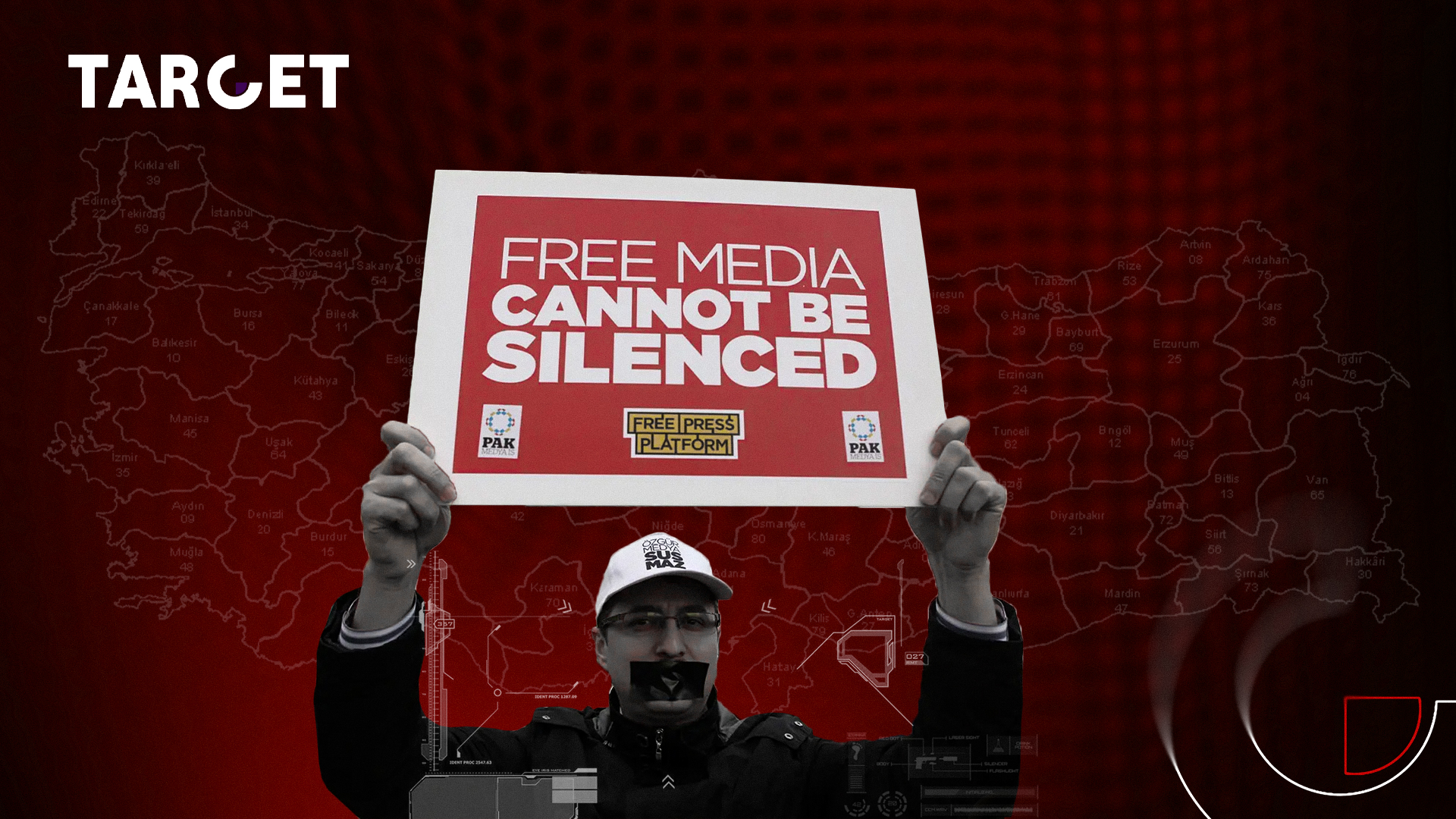On World Press Freedom Day, Reporters Without Borders (RSF) released the World Press Freedom Index 2023. A short video was released in which Rebecca Vincent, RSF Director of Operations and Campaigns, outlined the state of press freedom around the world. Vincent points out that the index shows tremendous volatility, with strong ups and downs and unprecedented changes. The index, published on the RSF’s website, finds that the environment and working conditions for journalism are problematic in 7 out of 10 countries. One of these countries is Turkey.
The report describes the situation in Turkey with the following words: “Recep Tayyip Erdogan’s ‘hyper-presidency’ has stepped up its attacks on journalists to divert attention from the country’s economic and democratic decline and to strengthen its political base in the run-up to the 2023 elections. Turkey has dropped 16 places compared to last year. It now ranks 165th out of 180 countries. The country dropped from the “difficult” category to the “very serious” category on the RSF Index, and pressure on journalists mounted ahead of the May 14 elections. According to the report, the Turkish State also affects journalism in Syria: “Syria, which ranks 175th, remains one of the most dangerous countries in the world for journalists caught in the crossfire between Bashar al-Assad’s murderous army, militias, and Turkish interventions. “
The report states that “authoritarianism is gaining ground in Turkey, challenging media pluralism.” It goes on to say that all possible means are being used to silence critics and that the Turkish government controls 90% of the national media. Violence against journalists criticizing the ruling AKP-MHP alliance has also increased since the 2019 local elections.
Freedom of the press in the 20-year rule of the AKP
On January 10, Turkey’s ‘Day of Working Journalists’, Yüksel Mansur Kilinc, Istanbul MP for the opposition Republican People’s Party (CHP), presented a report on the media situation during the 20-year rule of the AKP. Like RSF, Kilinc also stated: “Almost 90 percent of national television stations are under the control of the palace.” In Turkey, palace is synonymous with the rule of Turkish President Erdogan, who has resided in a lavishly built presidential complex since 2014. Almost half of the 1,800 national and local newspapers published in the country were shut down during AKP rule. Kilinc added that at least 12,000 media workers are unemployed and the unemployment rate in the media sector has reached 40 percent. In addition, the recently passed disinformation law has also increased the pressure on social media and internet media.
Another research finding showing the situation of press workers was noted in the 2022 Press Freedom Report by CHP MP Utku Çakırözer from the city of Eskişehir. According to the report, at least 50 journalists appeared in court almost every month in 2022. More than 100 journalists have been victims of reporting obstruction and physical violence. In 2013, the CHP’s “Report of Arrested Journalists, World’s Largest Journalist Prison: Türkiye” concluded that the situation in the country was worse than during the September 1980 coup, when 31 journalists were arrested.
Attack on Kurdish journalists
The Committee to Protect Journalists (CPJ) also issued a statement on May 2 noting that more journalists are being arrested and detained in the run-up to Turkey’s elections. According to the statement, Kurdish media are being targeted with allegations of links to the PKK. Most of the journalists who were recently arrested in a large-scale police operation also worked for the Kurdish press. The Mezopotamya Agency published an article on World Press Freedom Day entitled “34 journalists detained in the last 11 Months”.
The targeting of Kurdish journalists by the Turkish authorities is not a new development. According to the Bianet April-May-June 2014 media surveillance report, out of the 23 journalists detained in July 2014, 14 were Kurdish journalists. The following year’s report found that 13 of the 24 jailed journalists were from the Kurdish media. While the number of journalists in detention decreased during the peace process that began in July 2014, it increased again after 2015, when the process ended. The RSF also published a report on April 25 about the arrest of Kurdish journalists and called for their immediate release. “It is obvious that this is a political maneuver to eliminate the pro-Kurdish media and to destabilize the opposition parties ahead of the elections,” said RSF’s Erol Onderoglu. The report also drew attention to the fact that 25 Kurdish journalists had already been detained since mid-2022.

